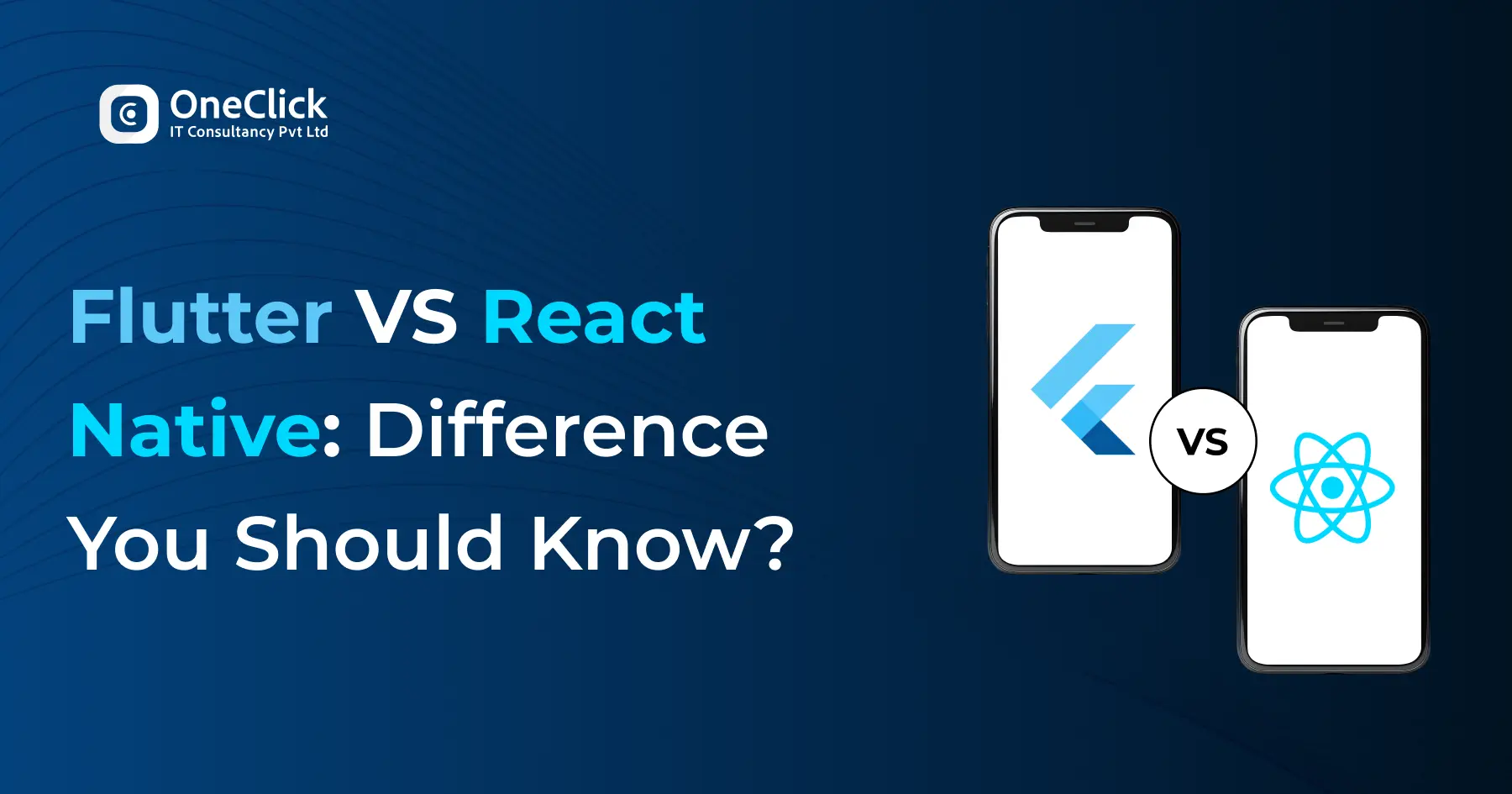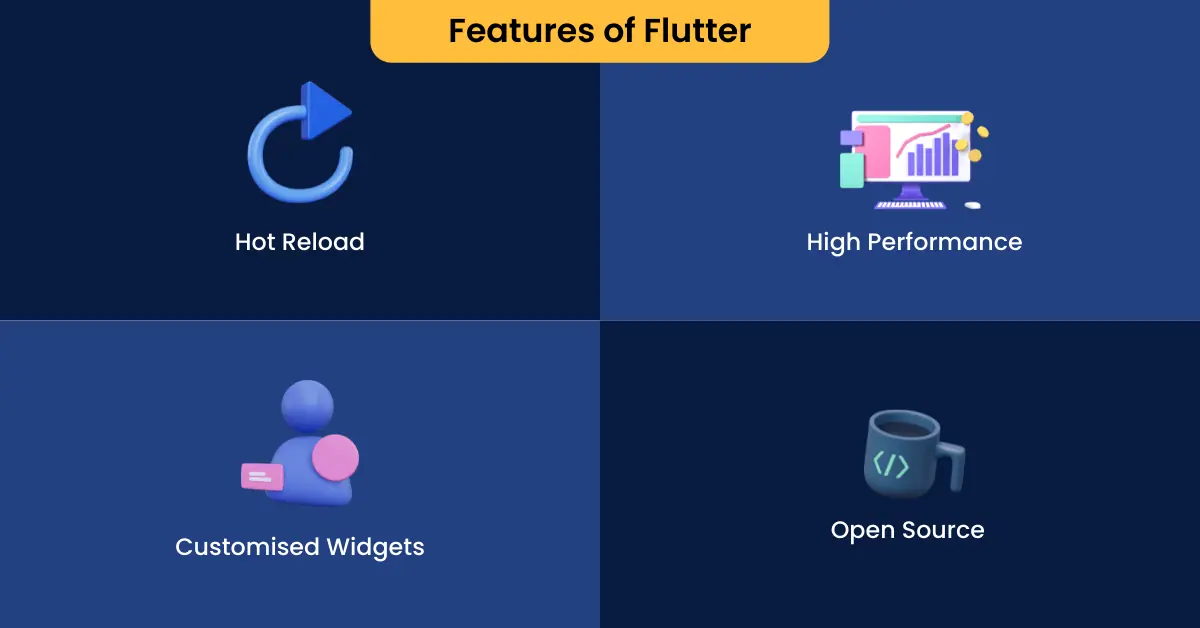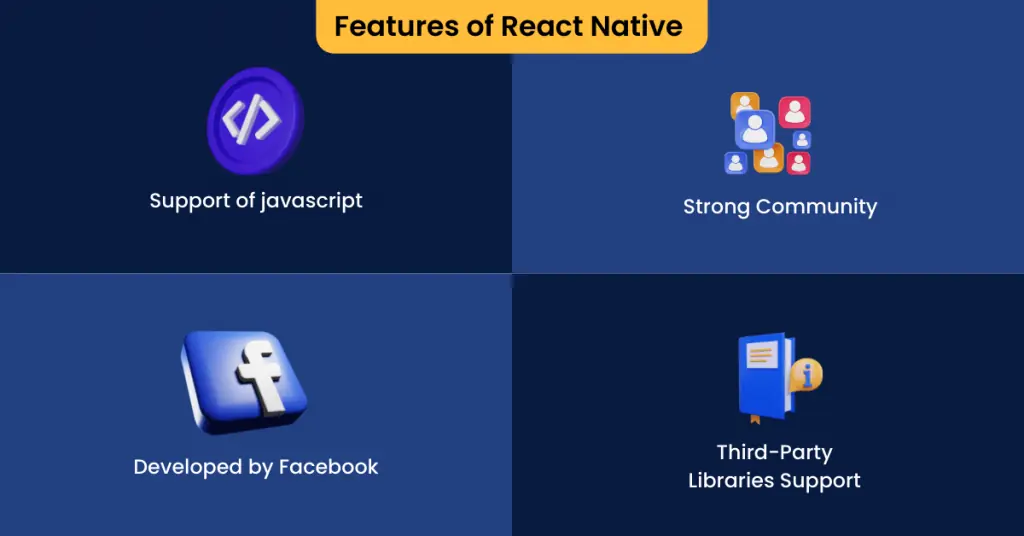Flutter vs React Native: Difference You Should Know

The usage of mobility solutions is increasing at a rapid speed. Launching mobile applications on different platforms is the next major challenge for startups and large enterprises. Developing multiple solutions for several platforms leads to an increase in cost and consumes a higher time duration.
Cross-platform app development has come to the rescue. With the right tools and technologies, developers can launch robust, secure, and native-like experience applications with a single codebase for different platforms.
Presently, in cross-platform development services, Flutter vs React Native development are the trending technologies. Both are modern, and popular and allow developers to build applications for multiple platforms. To leverage all the benefits of React Native and Flutter, it is important to know all about these technologies, including their pros and cons.
In this blog, we are discussing Flutter vs. React Native along with the major differences that help enterprises choose the right one as per their project requirements.

What is Flutter?
According to Wikipedia, “Flutter is an open-source UI software development kit created by Google. It is used to develop cross-platform applications for Android, iOS, Linux, macOS, Windows, Google Fuchsia, and the web from a single codebase.”
Things to Know About Flutter
- It is written in C, C++, and Dart programming languages.
- Released in May 2017
- Launched under New BSD License
- Supports advanced functionalities such as hot reloading, and navigation fonts, and consists of design widgets.
- Applications built with Flutter natively comply
- Supports Platforms – Android, iOS, Google Fuchsia, Web platform, Linux, macOS, and Windows
- Popular Apps created by Flutter are – Ali Baba, BMW, Google Ads, eBay, and much more.
What is React Native?
React Native combines the best parts of native development with React, a best-in-class JavaScript library for building user interfaces. It offers natively rendered mobile apps for different platforms such as Android and iOS. With a single code base, react native developers can launch native applications to the users.
Things to Know About React Native
- Known as popular Javascript-based mobile technology
- Based on open source and Backed by Facebook
- Tech giants such as Skype and Instagram are built with React Native.
- Developers can witness the changes as soon as they save the alternations.
- Launched under MIT license
- Written in: JavaScript, Java, C++, Objective-C, and Python
- Supports Platform – Android, Android TV, iOS, macOS, tvOS, Web, Windows, UWP, and VR
Top Features of Flutter

1. Hot Reload
The Hot Reload feature makes Flutter different from other cross-platform technologies. It allows coders to witness the modifications at the time of development only. Instantly, they are enabled to notice the changes.
Moreover, the hot reload feature simplifies the app development process and helps to save a huge amount of time and effort for the programmers.
2. High Performance
Flutter supports the Dart programming language. It utilizes JIT and AOT compilation that ensures improved functionalities and boosts performance. Furthermore, Flutter is a modern programming language designed to deliver high performance and match the latest market demands.
3. Customized Widgets
With Flutter, developers can create custom widgets. It offers all sets of widgets that include material design and a Cupertino pack that offers a tech error-free experience. This feature again makes Flutter a unique platform for cross-platform app development.
4. Open Source
Flutter is based on open-source technology that allows cross-platform developers to opt for the ready-to-use source code. Developers can modify the codes in terms of adding, editing, and deleting source code as per the project requirements. The open-source code helps to save a huge amount of time for the programmers.
Top Features of React Native

1. Support of javascript
The major feature of React Native is that it is based on JavaScript, a popular and widely recognized programming language across the world. Due to JavaScript support, most developers prefer to opt for React Native for the cross-platform app development process.
2. Strong Community
React Native is based on JavaScript and open-source technology that offers the support of a huge and strong community. The strong community support helps to make the technology stronger and updated with the latest market trends.
Moreover, the contribution of developers across the globe helps to resolve universal development complexity issues that help to save a huge amount of time.
3. Developed by Facebook
The main reason to opt for React Native technology is that it is backed by Facebook. It has strong tech giant community support that makes React Native fully trusted, and with the contribution of experts, it is updated and allows leveraging the benefits of the latest technologies.
4. Third-Party Libraries Support
RReact Native technology supports third-party libraries. It allows mobile app developers to have full access to third-party platforms that allow them to integrate features easily and helps to save a huge amount of time and effort.
Differences Between Flutter and React Native
| On the basis of | React Native | Flutter |
|---|---|---|
| Initial Release | March 26, 2015 | May 2017 |
| Developers | Facebook and community | Google and community |
| License | MIT | New BSD Licence |
| Written in | JavaScript, Java, C++, Objective-C, Python | C, C++, Dart |
| Supports Platforms | Android, Android TV, iOS, macOS, tvOS, Web, Windows, UWP, and VR | Android, iOS, Fuchsia, Web platform, macOS, Microsoft Windows, Linux |
| Performance | Slow as compared to Flutter | Faster as compared to React Native |
| Unit Testing | React Native a complicated testing process with javascript and have to opt for the third party platform | Flutter uses Dart programming languages that have inbuilt capabilities that make the process faster and easier also. |
| Architecture | Use of Flux architecture | Use of Skia architecture |
1. Mobile Performance
With React Native technology, developers have to execute the source code with Javascript native environment. It acts as a bridge that translates JS code to the native programming language. Hence, it is an extra step for the developers to opt for Javascript but, with Flutter, developers can opt for the smooth development process with advanced animations and leverage the benefits of the C++ graphic rendering engine.
2. Popularity and Community Support
Both have strong community support but Flutter is new to the market as compared to React Native. React Native has already won hearts and developers are putting their efforts to make it more advanced but Flutter will take some time for it to meet the expectations.
3. Programming Languages
Programming languages play an important role in the development process. With dedicated flutter developer require in-depth knowledge of the Dart programming language, while on the other end React Native developers require their hands-on experience in Javascript/ C++/ Python, and much more.
4. Code Usability
Flutter allows developers to reuse the codes at extended possibilities, but with React Native developers can reuse the codes limited.
Let’s make the differences more simple to understand for our users. Have a quick look at the major differences that you should know between Flutter and React Native.

Conclusion
Both Flutter and React Native are popular programming languages. In order to leverage the benefits, it is important for the developers to know about the specific functionalities of the technologies.
In this blog, we have listed all the features and major differences between Flutter and React Native. Developers can choose the technology for the app development process as per the project requirements. React Native is the oldest platform whereas Flutter is a modern cross-platform app development platform.





